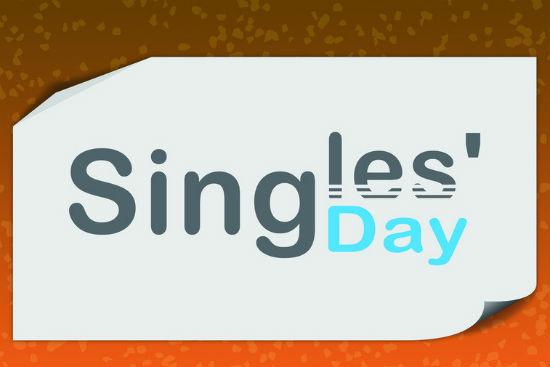CAT COCO
撰文&整理 | Nikki
新媒体设计 | ElenaR

今天语法小课堂来讨论”it“的用法
“it”的用法多多
大家难免有些混淆
那我们跟着剑桥词典整理的“it”的语法
一起学习一下吧!

作为主格及宾格代词
这应该也是大家最熟悉的用法之一
We commonly use the pronoun it as both a subject and an object pronoun
Cambridge Dictionary
“it我们通常用于主格和宾格代词”
Don’t drink the milk. It smells terrible.
“不要喝那个牛奶,闻起来味道不好。”
这句里it为主格代词,代的前面的milk牛奶
Has anyone seen my phone? I can’t find it anywhere.
“有人看到我的电话了嘛?我哪里都找不到。”
这里的it则是宾格代词,代的是phone手机
因为手机不再是主语,而是“I”是主语
用于疑问句句尾
这里直接给个例子比较直观
That furniture is lovely. It isn’t too expensive for us, is it?
“那个家具很不错,对我们来说不算太贵对吧?”
这里出现两个it,第一个就是我们前面说的主格代词
代的是前面提到的furniture家具
那么最后结尾的it就是疑问句句尾的用法
用于形式主语及形式宾语
当不定式、动名词、从句等复杂成分用作句子主语时
为保持句子平衡,通常把真正的主语放在句末,而在句首使用形式主语it
It is ‘empty’ because it doesn’t refer to anything in particular.
Cambridge dictionary
英文里形式主语为empty subject
之所以叫“empty”空的就是指它并不特指任何东西
我们来看几个例句
I know it’s going to rain today!
“我知道今天会下雨!”
It’s getting a bit late now, so let’s watch a DVD at home, shall we?
“现在有些晚了,我们在家看DVD如何?”
当不定式、动名词、从句等复杂成分用作宾语且其后跟有宾语补足语时
通常会在宾语补足语前使用形式宾语,而将真正的宾语移至句末
其基本结构为“动词 it 宾语补足语 不定式(动名词或从句)
形式宾语的英文是empty object
和形式主语一样
用于形式宾语的it无任何特指含义
She doesn’t like it when you are so quiet.
“她不喜欢你太安静。”
How long will it be before he gives up smoking?
“他还有多久才能戒烟?”
用于引入/预期主语或宾语
对于“预期”的用法
剑桥词典是这么解释的
We also use it to introduce or ‘anticipate’ the subject or object of a sentence, especially when the subject or object of the sentence is a clause. Most commonly, such clauses are to infinitive and that clauses.
Cambridge dictionary
“我们还会用“it”来介绍或“预期”句子的主语或宾语,尤其是当主语或宾语是从句时。最常见的从句是“to 不定式”和“that从句”。”
We also call this use of it a ‘dummy’ subject, since the real subject is another part of the sentence (real subject underlined)
Cambridge dictionary
“这里的it也是空主语,因为真正的主语是句子的另一部分。”
我们这里举几个例子,注意真正的主语是下划线部分
括号里是更正式的写法
It was nice to talk with them again. (or, more formally: To talk with them again was nice.)
“和他们再交谈感觉不错。”
It’s quite likely that we shall be late, so please do start without us.
“我们非常可能会迟到,所以不要等我们直接开始。”
那么如何判断一个句子是“预期”的
剑桥词典给出了“find”和“consider”这两个指标
通常用这两个动词在前面介绍的句子结构里
需要用it
I find it amazing that they’ve never stopped arguing about football.
“我发现他们从未停止争吵橄榄球的事情很神奇。”
用于从句作为动词的主语
这里的动词主要是以下这四个词
appear, seem, look, occur
We also use it when a clause is the subject of a verb such as appear, seem, look, occur, which hedge or soften the statement, making it less direct.
Cambridge dictionary
“用it的目的是使句子更柔和,不显得太直接。”
It seems they’ve all lost contact since they met at the wedding.
“看起来他们自从在婚礼上见面后就没再联系了。”
It occurred to me that we might visit them while we are in South Africa.
“在我看来我们在南非的时候可能会去看望他们。”
用于强调
We use it in cleft sentences. It emphasises the subject or object of the main clause.
Cambridge dictionary
“我们用it于强调语句。It强调主句的主语或者宾语。”
It was his sister who ran the marathon in New York, wasn’t it?
“是他的妹妹在纽约跑的马拉松,不是吗?”
It was Mary they promoted, not Laura.
“他们提职的是Mary,不是Laura。”
用于被动语态
It is common with the passive voice. It makes the sentence seem less personal and more objective
Cambridge dictionary
“it经常用于被动语态。用it能让句子听上去不那么个人化,而是更客观。”
这里给两个例子
It was decided that we should all swim across the lake before breakfast.
“决定我们都应该在早饭前去湖里游泳。”
It is accepted that research into cancer has advanced considerably in the last few years.
“在过去几年内对人们癌症的研究已经取得了相当大的进步是公认的。”





